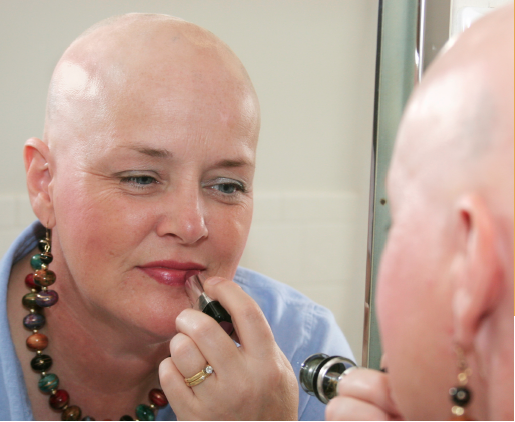Chemotherapy-Related Cognitive Impairment
Strategies for intervention
Abstract
Chemotherapy-related cognitive impairment (CRCI) is characterized by memory loss, lack of concentration and attention, difficulty multitasking, organizing, planning, and thinking. CRCI can have a significant impact on quality of life but treatment options with strong supporting evidence of efficacy are scarce. This review highlights the current state of evidence regarding CRCI and therapies that may help improve cognitive function in this patient population.
Introduction
Chemobrain, also referred to as chemofog, or chemotherapy-related cognitive impairment, is a phenomenon that has been reported by patients receiving various forms of chemotherapy for the past three decades. Estimates of chemotherapy-related cognitive decline (CRCI) in breast cancer survivors are as high as 75% (Ahles 2002, Brezden 2000, Schagen 1999, Tchen 2003, Van Dam 1998). The cognitive impairment is typically characterized by memory loss, lack of concentration and attention, difficulty thinking, organizing, planning, and multi-tasking (Matsuda 2005, Reid-Arndt 2009).
While it was generally accepted by the 1990s that chemotherapeutic agents could be acutely neurotoxic when delivered directly to the nervous system, CRCI was still regarded as psychogenic (Hede 2008, Myers 2009). Given the inability of many chemotherapeutic agents to cross the blood-brain-barrier, it was believed that chemotherapy was an unlikely cause of neurotoxicity when administered systemically (O’Farrell 2013). Many confounding factors such as psychological distress associated with having cancer, fatigue, anxiety, depression, and effects of medication prescribed in conjunction with chemotherapeutic intervention, all can alter cognitive function as well.
Due to advancements in cancer treatment, there is also increased survival. As a result, there are a rising number of patients who are living with long-term side effects of these anti-cancer agents, which canhave significant negativeimpactson quality of life.
Impact on Quality of Life
In a 2010 survey conducted by the Canadian Breast Cancer Network, women who had received chemotherapy had the greatest reduction in house-hold income, took more time off work, were more likely to have had to quit their jobs, and had a greater perception that the financial burden imposed by their illness would impact their long-term health (Dunbrack 2010). In a study by Reid-Arndt et al., women with stages I-III breast cancer were evaluated one month after completing adjuvant chemotherapy. Data was collected regarding cognitive, emotional, social, and vocational functioning and an association between executive functioning deficits and decreased productivity, community involvement, and social role functioning was found (2009).
Advancements in Research
Studies on CRCI in the recent past reported poor, if any, correlation between subjective reports of cognitive decline and objective measures of cognitive performance (Biglia 2012, Hutchinson 2012, Jansen 2011). In order to establish appropriate guidelines for study design and methodology when performing research in this field, the International Cognition and Cancer Task Force (ICCTF) was created in 2006. This aided tremendously in promoting comparable findings among studies and reducing the number of confounding variables in the research (Wefel 2008).
Dr. Patricia Ganz conducted one of the first studies demonstrating that cognitive complaints after breast cancer treatment are associated with neuropsychological test performance. Her team enrolled 189 breast cancer patients one month post surgery, with or without radiation and/or chemotherapy, and prior to commencing hormone therapy—a common confounding factor. The control group consisted of a sample of age-matched healthy women and found that 23.3% of the breast cancer patients reported higher memory complaints and 19% had higher executive function complaints post-treatment; >1 SD above the mean for healthy control sample (Ganz 2013).
McDonald et al. performed the first controlled prospective MRI study in the field of neuroimaging whereby significant decreases in gray matter density were found in bilateral, frontal, temporal, and cerebellar regions as well as the right thalamus in breast cancer patients shortly following chemotherapy treatment. These changes were not evident in either a disease or healthy control group.
The cognitive changes could also not be accounted for by postsurgical effects, disease stage, psychiatric symptoms, psychotropic medication, or hormonal treatment status, suggesting the changes were due to chemotherapy treatment (2010). No other study had prospectively examined gray matter changes in patients both receiving and not receiving chemotherapy with a pre-treatment baseline with which to compare post-treatment changes. This groundbreaking study was the first to show decline in brain gray matter density shortly after chemotherapy and degree of long-term recovery via a prospective longitudinal approach.
Evidence-Based Interventions
Modafinil
Sixty-eight participants with memory problems persisting two years post-chemotherapy treatment for breast cancer were given 200mg daily of Modafinil (a psychostimulant used in the treatment of patients with narcolepsy) for four weeks, finding modest but statistically significant improvement in speed of memory and episodic memory, but not in working memory, compared with controls (Kohli 2009, Von 2011). Other groups have tried a one-time dose of 200mg, finding improvement in attention and psychomotor speed but not in working memory (Lundorff 2009).
In another study by Blackhall et al., initial doses of 100mg Modafinil for two weeks, increasing to 200mg daily in 27 patients with cancer of all stages, did not show improvement in cognitive functioning. Due to the mixed results and small sample sizes, effectiveness of this medication for the treatment of CRCI has not been established (2009).
Exercise
Korstjens evaluated the effects of a 12-week rehabilitation program combining exercise with a psychoeducational program on various aspects of quality of life, including cognition. Physical exercise sessions overseen by a physiotherapist occurred twice a week for two hours and included aqua aerobics, group sports, or individual endurance and strength training. The psychoeducational program consisted of seven two-hour sessions focused on coping with cancer. Improvements in global cognitive function were reported based on two items on the European Organization for Research and Treatment of Cancer Quality of Life Questionnaire Core-30 (2006). Although some improvements were reported in cognitive function in this and other studies (Schwartz 2002), it is difficult to determine the effect of an exercise intervention on cognitive impairment because of the difference in definition and delivery of the exercise intervention programs, small sample sizes, and study designs (combined multiple interventions). Further research is required.
Natural Environment Intervention
Attention-restoring theory identifies that the environment may influence one’s ability to concentrate and capacity to direct attention (Cimprich 2003); thus, natural restorative environmental interventions may replenish psychological reserves and improve cognitive functioning. Two studies were found that evaluated the impact of natural restorative environmental intervention on cognitive function in patients with cancer (Cimprich 1993, Cimprich 2003).
Cimprich examined the impact of a natural restorative environmental intervention (walking in nature or gardening for 20-30 minutes three times a week) in 32 patients with breast cancer and assessed their level of attention at three, 18, 60, and 90 days after surgery. Significant and sustained improvement in attentional fatigue scores were noted across all four time periods (1993). Similarly, in a follow-up randomized, controlled trial of 157 patients with breast cancer, Cimprich and Ronis demonstrated that those who were exposed to the natural environment for 120 minutes per week had improved capacity to direct attention from pretreatment as compared with the nonintervention group, even after controlling for age, education, attention scores prior to surgery, other health problems, distress, and extent of the surgery (2003). Additional longitudinal research is needed to understand its sustainability throughout the course of cancer treatment, as well as to test outcomes in other cancer populations.
Acetyl-L-Carnitine
Though not yet clinically tested for cognitive impairments due to chemotherapy, ALC improved memory, visuo-spatial capacity, and vocabulary recall when given at two grams per day over a test period of three months in cognitively impaired ex-alcoholics aged 30-60 years (Tempesta 1990).
In controlled trials, ALC improved depression as well as cooperation, sociability, and attention to personal appearance, though it did not consistently improve anxiety (Bonavita 1986). Dosage ranges from 1,500-3000mg per day with most trials using two grams or more (Kidd 1999).
Given that acetyl-L-carnitine aids in the treatment/prevention of chemotherapy-induced peripheral neuropathy (CIPN) and that CIPN can be caused by chemotherapeutic agents such as Paclitaxel and Cisplatin— known to also cause chemotherapy-related cognitive impairment—the use of ALC may help to target more than one of these side effects which may impact quality of life significantly (Pisano 2003).
Phosphatidylserine (PS)
PS is present in all cells of the human body and particularly in the membrane systems of nerve cells. While also not clinical studied for CRCI, phosphatidylserine consistently benefits memory, learning, concentration, word choice, mood, and relieves anxiety and depression, and the capacity to cope with stress (Crook 1992, Kidd 1998, Maggioni 1990). Effective intakes of PS range from 100mg per day (for smaller children and for maintenance in healthy adults) to 300mg/day for memory loss and up to 600mg/day for mood enhancement (Kidd 1998).
Conclusion
For the past several decades research on CRCI has focused on proving whether this side effect is psychogenic or neurological in nature. With studies now using advanced neuroimaging techniques, new research may attempt to elucidate mechanisms by which various chemotherapeutic agents may be causing cognitive decline in patients with other forms of cancer, not limited to breast cancer. Insight into mechanisms of action will in turn allow for more research regarding treatment and prevention of CRCI. Sample sizes of the majority of the present studies are too small to make appropriate inferences about any conclusions made. Patient populations in these studies are typically females with breast cancer and not representative of all other types of cancer.
References
Ahles TA, Saykin AJ, Furstenberg CT, et al. Neuropsychologic impact of standard dose chemotherapy in long-term survivors of breast cancer and lymphoma. J Clin Oncol. 2002;20:485-493.
Biglia N, Bounous VE, Malabaila A, et al. Objective and self-reported cognitive dysfunction in breast cancer women treated with chemotherapy: a prospective study. Eur J Cancer Care. 2012;21:485-92.
Blackhall, L., Petroni, G., Shu, J., Baum, L., & Farace, E. A pilot study evaluating the safety and efficacy of modafinil for cancer-related fatigue. Journal of Palliative Medicine. 2009;12:433-439.
Bonavita E. Study of the efficacy of tolerability of L-acetyl carnitine therapy in the senile brain. Intn J Clin Pharmacol Ther Toxicol. 1986;24:511-516.
Brezden CB, Phillips KA, Abdolell M, et al. Cognitive function in breast cancer patients receiving adjuvant chemotherapy. J Clin Oncology. 2000;(18):2695-2701.
Cimprich B. Development of an intervention to restore attention in cancer patients. Cancer Nursing. 1993;16:83-92.
Cimprich, B., & Ronis, D.L. An environmental intervention to restore attention in women with newly diagnosed breast cancer. Cancer Nursing. 2003;26:284-292.
Crook T, Petrie W, Wells C, Massari DC. Effects of phosphatidylserine in Alzheimer’s disease. Psychopharmacol Bull. 1992;28:61-66.
Dunbrack J. Breast cancer: Economic impact and labour force re-entry. Ottawa: Canadian Breast Cancer Network, 2010. Web. 27 Jul 2013 <http://www.cbcn.ca/documents/ Labour_Force_Re-Entry_Report_ENG_CBCN_2010.pdf> .
Ganz PA, Kwan L, Castellon SA, Oppenheim A, Bower JE, Silverman DH, Cole SW, Irwin MR, Ancoli-Israel S, Belin TR. Cognitive complaints after breast cancer treatments: examining the relationship with neuropsychological test performance. J Natl Cancer Inst. 2013 Jun 5;105(11):791-801.
Hede, K. Chemobrain is real but may need new name. J Natl Cancer Inst. 2008;100(3):162-169.
Hutchinson AD, Hosking JR, Kichenadasse G, et al. Objective and subjective cognitive impairment following chemotherapy for cancer: a systematic review. Cancer Treat Rev. 2012;38:926-34.
Jansen CE, Cooper BA, Dodd MJ et al. A prospective longitudinal study of chemotherapy-induced cognitive changes in breast cancer patients. Support Care Cancer. 2011;19:1647-1656.
Kidd PM. A review of nutrients and botanicals in the integrative management of cognitive dysfunction. Altern Med Rev. 1999 Jun;4(3):144-161.
Kidd PM. Phosphatidylserine. Number one Brain Booster. New Canaan, CT.: Keats Publishing; 1998.
Kohli S, Fisher SG, Tra Y, Adams MJ, Mapstone ME, Wesnes KA, Roscoe JA, Morrow GR. The effect of modafinil on cognitive function in breast cancer survivors. Cancer. 2009 Jun 15;115(12):2605-16.
Korstjens I, Mesters I, van der Peet E, Gijsen B, van den Borne B. Quality of life of cancer survivors after physical and psychosocial rehabilitation. European Journal of Cancer Prevention. 2006;15:541-547.
Lundorff LE, Jonsson BH, Sjogren P. Modafinil for attentional and psychomotor dysfunction in advanced cancer: A double-blind randomised, cross-over trial. Palliative Medicine. 2009;23:731-738.
Maggioni M, Picotti GB, Bondiolotti GP, Panerai A, Cenacchi T, Nobile P, Brambilla F. Effects of phosphatidylserine therapy in geriatric patients with depressive disorders. Acta Psychiatr Scand. 1990 Mar; 81(3):265-270.
Matsuda T, Takayama, T, Tashiro M. et al. Mild cognitive impairment after adjuvant chemotherapy in breast cancer patients –evaluation of appropriate research design and methodology to measure symptoms. Breast Cancer. 2005;12:279-287.
McDonald BC, Conroy SK, Ahles TA, West JD, Saykin AJ. Gray matter reduction associated with systemic chemotherapy for breast cancer: a prospective MRI study. Breast Cancer Res Treat. 2010 Oct;123(3):819-828.
Myers JS. Chemotherapy-related cognitive impairment. Clin J Oncol Nurs. 2009;13(4):413-421.
O’Farrell, E, Mackenzie J, Collins B. Clearing the Air: A Review of Our Current Understanding of “Chemo Fog.” Current Oncology Reports. 2013 Jun;15(3):260-9.
Pisano C, Pratesi G, Laccabue D, et al. Paclitaxel and Cisplatin-induced neurotoxicity: a protective role of acetyl- L-carnitine. Clin Cancer Res 2003;9(15)5756-67.
Reid-Arndt, SA. Breast cancer and “chemobrain”: the consequences of cognitive difficulties following chemotherapy and the potential for recovery. Mo Med. 2009;106(2):127-131.
Schagen SB, van Dam FS, Muller MJ, et al. Cognitive deficits after postoperative adjuvant chemotherapy for breast carcinoma. Cancer. 1999;85:640-650.
Schwartz AL, Thompson JA, Masood N. Interferon-induced fatigue in patients with melanoma: A pilot study of exercise and methylphenidate [Online exclusive]. Oncology Nursing Forum. 2002;29:E85-E90.
Tchen N, Juffs JG, Downie FP, et al. Cognitive function, fatigue, and menopausal symptoms in women receiving adjuvant chemotherapy for breast cancer. J Clin Oncology. 2003;21:4175-4183.
Tempesta E, Troncon R, Janiri L, et al. Role of acetyl-L-carnitine in the treatment of cognitive deficit in chronic alcoholism. Int J Clin Pharmacol Res. 1990;10:101-107.
Van Dam FSAM, Schagen SB, Muller MJ, et al. Impairment of cognitive function in women receiving adjuvant treatment for high-risk breast cancer: high-dose versus standard-dose chemotherapy. J Natl Cancer Inst. 1998;90:210-218.
Von Ah D, Jansen C, Allen DH, Schiavone RM, Wulff J. Putting evidence into practice: evidence-based interventions for cancer and cancer treatment-related cognitive impairment. Clinical Journal of Oncology Nursing. 2011 Dec; 15(6):607-15.
Wefel JS, Vardy J, Ahles T, et al. Cancer and cancer-related cognitive dysfunction: an international perspective from the Venice cognitive workshop. Ann Oncol. 2008;19:623-9.










